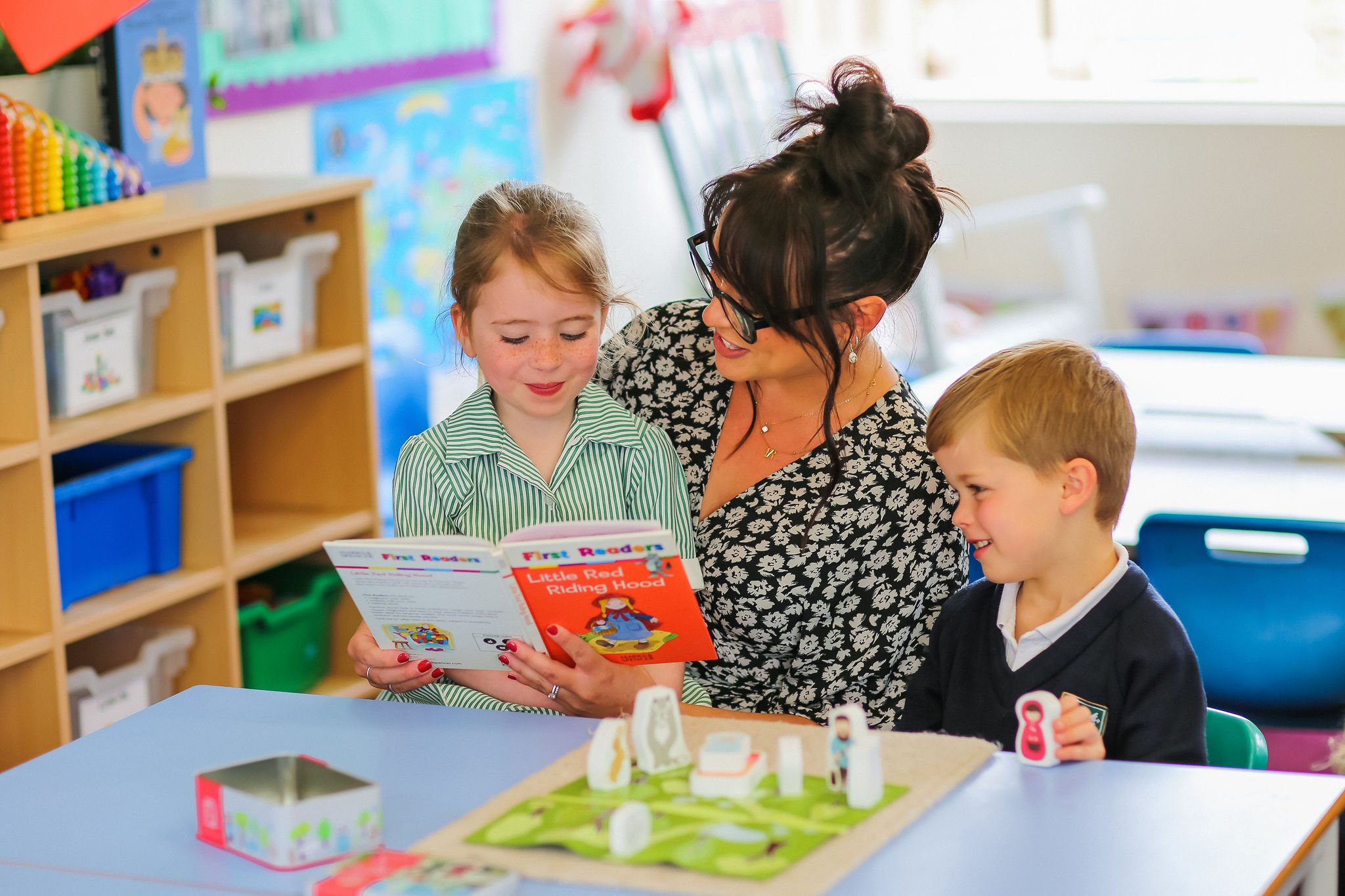Whether it’s going to be your child’s first experience at school or they’re beginning a new school year, returning to school can feel very daunting and prompt feelings of anxiety. Dealing with back to school anxiety is very common and many pupils feel the same way.
Our top tips could help your family manage and alleviate back to school anxiety, and encourage an enthusiasm for getting back in the classroom!
1. Plan and Prepare
When students organise their schedules, gather necessary supplies, and set realistic expectations, they reduce the uncertainty and chaos that often fuels anxiety. A well-thought-out plan empowers students to tackle challenges systematically and approach their academic responsibilities with confidence.
Additionally, preparation helps build a foundation for success, enabling students to focus on their studies and social interactions, rather than worrying about last-minute details. By planning and preparing effectively, it alleviates anxiety, fostering a smoother transition, and a positive school experience.
2. Talk About How They Feel
Bottling up anxiety can lead to increased stress and isolation, while sharing concerns with a trusted friend, family member, or counsellor can offer validation and perspective. Often, simply verbalising your worries can make them feel more manageable and less overwhelming.
If your child confides in you, try to provide advice or share your own coping strategies to demonstrate they’re not alone in their struggles. By encouraging children to open up about their feelings and sharing your own, you can help create a bridge to understanding and empathy, which can significantly ease the burden of back-to-school anxiety.

3. Set Realistic Expectations
When students establish achievable academic and personal goals, they create a sense of attainability and control over their circumstances. Unrealistic expectations can lead to unnecessary stress and a constant fear of falling short.
In contrast, setting realistic expectations helps children acknowledge that everyone has strengths and weaknesses and that learning is a gradual process. This mindset shift allows students to focus on personal growth and progress rather than striving for unattainable perfection.
By setting attainable goals, individuals can reduce anxiety, boost self-esteem, and approach their school responsibilities with a more balanced and positive outlook.
4. Focus on the Positive
Focusing on the positive is a powerful strategy for managing back-to-school anxiety because it shifts your perspective from fear and apprehension to optimism and confidence. By actively recognising and celebrating the aspects of school that your child enjoys or looks forward to, they can start reframing their mindset. This mental shift helps counterbalance the negative thoughts that often accompany anxiety.
Remind them of past successes and personal strengths to help reinforce their confidence, foster resilience and reduce anxiety’s grip. Ultimately, a positive outlook can provide the motivation and emotional resilience needed to approach the school year with greater ease and a sense of excitement.

5. Establish a Good Routine
Routines establish a daily rhythm, reducing the uncertainty that can trigger anxiety. A consistent sleep schedule, for instance, ensures that your child is well-rested, enhancing their mood and cognitive functioning.
Similarly, organised study and leisure time slots allow for efficient time management, preventing last-minute rushes and panic. Routines help build habits, and the sense of accomplishment from sticking to a routine can boost confidence and reduce stress.
A well-structured routine promotes a sense of control, stability, and preparedness, which are essential for effectively managing back-to-school anxiety.
6. Practise Relaxation Techniques
Techniques such as deep breathing, meditation, and mindfulness help reduce stress hormones and promote a sense of inner peace. They enable students to regain control over their emotions and thoughts, which is crucial when anxiety threatens to overwhelm.
Consistent practice of these techniques also enhances resilience, allowing individuals to face school-related challenges with greater composure and clarity. Relaxation techniques provide a valuable counterbalance to anxiety’s disruptive effects, equipping students with effective coping strategies.

7. Encourage the Practice of Self-compassion
When facing the stress of school, it’s easy to be self-critical and set unrealistically high standards. However, self-compassion encourages pupils to treat themselves with the same warmth and empathy you’d encourage them to offer to a friend. Reminding your child to be compassionate to themselves reminds them that it’s okay to make mistakes and experience anxiety, as these are natural parts of life and many other students experience the same feelings.
Self-compassion helps reduce the emotional burden of self-judgement and creates a more supportive internal environment, ultimately helping your child navigate back-to-school challenges with greater resilience and emotional well-being.
8. Seek Help if Needed
Try to discuss with your child how they are feeling, what triggers this feeling, and ways of managing it. Explain to them that it is very normal to feel this way and that many other students and friends may feel the same.
Often it can help your child to know if you have experienced this feeling of anxiety, by opening up about your struggles it will help your child to not only open up but feel less alone and like their feelings are valid.
If you feel your child needs professional help, do not hesitate to contact your GP, or a counsellor, many schools offer school counselling so this may be a good route to go down. By helping your child to open up about their emotions, it will become easier to address and overcome the hurdles of back-to-school anxiety.
Dealing with Back-to-school Anxiety at St Peter’s Prep
Here at St Peter’s Prep, an independent primary school, our students are at the heart of what we do. We know it can be challenging for many coming back to school or joining for the first time, this is why we offer support and encouragement to help our students manage their struggles, including back-to-school anxiety. We ensure both our students and staff members are well educated on mental health and set up for success.
If you’re interested in our friendly, welcoming school community please do not hesitate to get in contact with us today!








